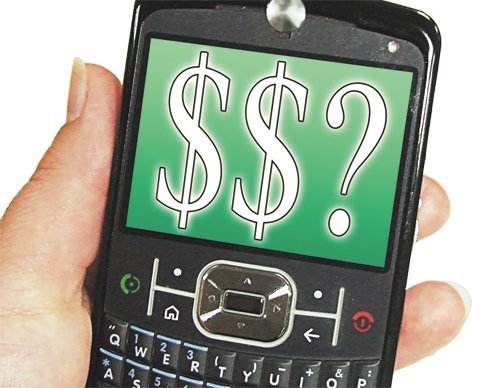Wireless consumers in the United States pay more than 17 percent in taxes and fees on average on their cell phone bills, including more than 11 percent in state and local charges, according to a new analysis by the Tax Foundation.
In Nebraska, the combined federal-state-local average rate is nearly 24.5 percent, and in six other states (Washington, New York, Florida, Illinois, Rhode Island, and Missouri) it exceeds 20 percent.
The study notes, “As many different government entities take aim at the cell phone service tax base in an uncoordinated fashion with little concern for how other taxing authorities treat the services, cell phones are taxed at a much higher level than other consumer items (even alcohol and cigarettes).”
“Accessing new sources of information on our mobile devices may be getting easier, but paying cell phone taxes is not,” said Joseph Henchman, Tax Foundation vice president for legal & state projects, and a coauthor of the study. “State and local governments should not single out one product for stealth tax increases as they are doing with wireless services.”
Average Total: 17.18 Percent
Included in the report, which uses recent data from a study by Scott Mackey of KSE Partners, are the following findings:
- The average U.S. wireless consumer pays taxes and fees of 17.18 percent, of which state-local charges average 11.36 percent.
- Twenty-six states have average state-local wireless taxes and fees in excess of 10 percent; with federal taxes, some cell phone subscribers pay more than 20 percent in taxes.
- States favor the taxes because they can raise revenue in a relatively hidden way. For example, Texas sued Sprint because the company listed a state tax as a line-item in its bill, rather than hiding it from customers.
- Cell phones are taxed at a much higher level than other consumer items, even as much as or more than alcohol or cigarettes. The highest sales tax in the country (combined state and average local rates) is 9.43 percent in Tennessee; the highest state and local rates for cell phone service are almost twice as high.
- Among local jurisdictions, Baltimore, Maryland imposes a $4 per line per month tax on wireless users, on top of federal and state charges. Nearby Montgomery County, Maryland imposes a $3.50 per line per month tax. These per line charges are especially burdensome on low-priced “family share” plans.
“Scholars from across the political spectrum have criticized telecom taxes as burdensome, regressive, and stifling consumer choice,” said Tax Foundation economist Scott Drenkard. “In response to this problem, legislation entitled the Wireless Tax Fairness Act, which would restrict excessive state and local wireless taxes, has been regularly introduced in Congress.”
‘Serious Problem for Cell Businesses’
In their report, Henchman and Drenkard write, “Because each state and many localities can impose cell phone taxes, and because they can be imposed as a percentage or as a flat rate, there are numerous taxes which vary widely. Researchers have found it difficult to create a database of cell phone taxes, and cell phone companies have encountered similar problems in calculating the taxes. This can be a serious problem for cell phone businesses because they collect the taxes from subscribers and can be held legally accountable for any mistakes—both over-collection and under-collection.”
And, of course, it’s a serious problem for cell phone users. The authors write these stealth tax increases on wireless services “distort market decisions and risk slowing investment that contributes to economic growth. Cell phone users are overtaxed relative to consumers of other goods and at risk of double taxation.”
Internet Info
“State and Local Governments Impose Hefty Taxes on Cell Phone Customers,” Joseph Henchman and Scott Drenkard, Tax Foundation: http://taxfoundation.org/article/state-and-local-governments-impose-hefty-taxes-cell-phone-consumers





